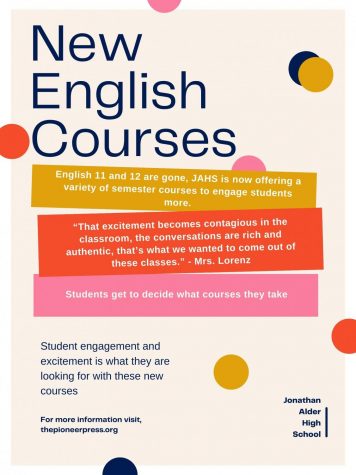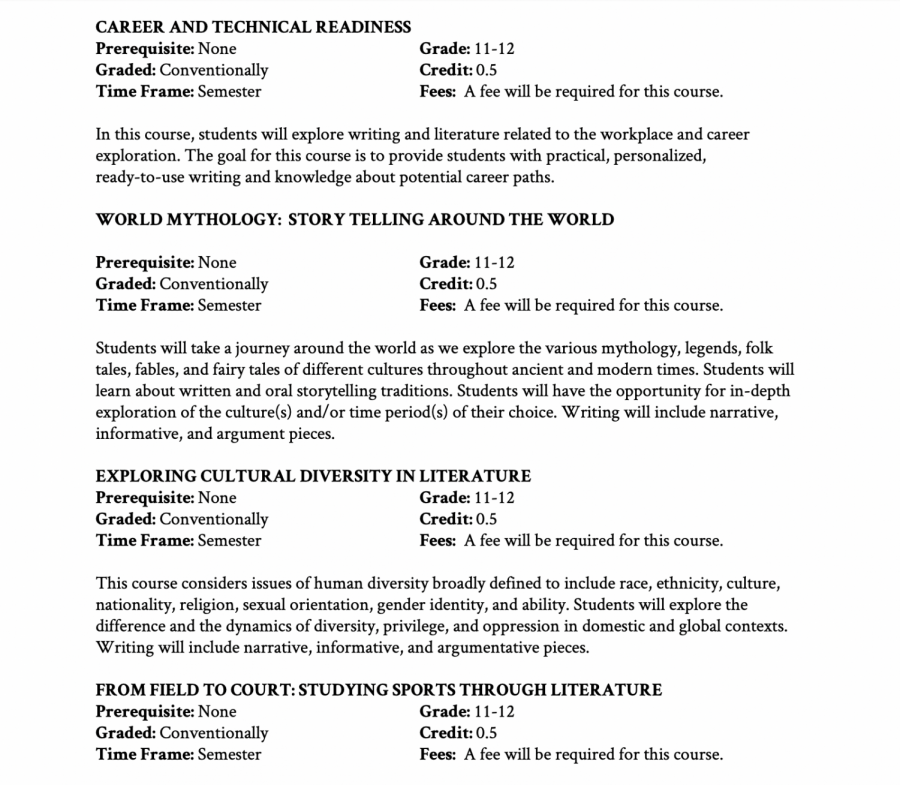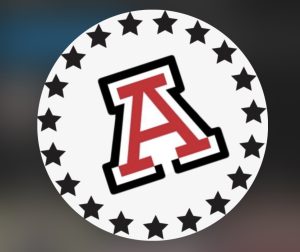New English Courses at JAHS
Screenshot of JAHS course handbook; can be found at https://docs.google.com/document/d/1-BC7wRAjZ5IA6gTHUlm8BoYiqOgxljwByhePzkgp3B4/edit
October 19, 2021
As the school year is now in full swing, Jonathan Alder has many new things that have come into the 2021-2022 school year. Not only new coaches and teachers but courses as well; towards the end of the last school year the English department sat down together and talked about incorporating new English courses for juniors and seniors that not only highlight one specific genre, but also engage students by giving them more of a choice in what they want to take.
“The motivation behind this was bringing classes to students that they’re excited about,” says English teacher Mrs. Lorenz. “That excitement becomes contagious in the classroom; the conversations are rich and authentic, [and] that’s what we wanted to come out of these classes.”
The new courses include: gothic, mystery; horror literature; career and technical writing; sports literature; preparing for college; world mythology; young adult literature; media literacy; dystopian literature; and film studies. All of these courses are new to JA except for film studies, which was only an elective but was adopted to fit the requirements of an English course. “As a department we worked together to create a list of offerings and based on that list we prioritized what we were most interested in teaching,” says Lorenz.

Lorenz has been teaching at Alder for four years and is now teaching sports lit., preparing for college, world mythology and young adult lit. “Since last year I taught exclusively 11th and 12th grade, I knew a lot of my schedule was going to be most of these new classes,” says Lorenz. “So I was really excited to take on any of them, it was just whatever fit into my schedule.”
Staff members agree that having these new classes give more opportunities for students “As we go through the semester, I would like my sports lit. class to cover Alder sports. I want to start a class blog and possibly even make some podcast episodes,” says Lorenz. “To really give students a chance to not only talk about Friday night’s football game, but special interest stories behind the scenes of the game.”
That engagement is something English teacher Ms. Tinberg has seen in her dystopian lit. class: students engaging in conversation and participating. “We read the ‘Lottery’ by Shirely Jackson and we had this conversation about traditions,” says Tinberg. “We talked about traditions that have big picture stuff like gender roles, but then we also talked about weird Christmas traditions. These little discussions that we have are my favorite and I feel that they are more enriched.”
Engaged and committed students are the purpose of these courses, “having a choice in doing something that interests me more has gotten me to participate in class and meet deadlines for my classes,” says senior Nick Finke. Last year he took English 11 and is currently taking gothic horror stories and career and technical readiness.
“I am more interested in the material that I’m learning about; last year in English 11 when we got to our poetry section I had no interest,” says Finke. English 11 and 12 were set up as basic English courses, but the thing about them is that there is no required state testing for them, giving teachers more opportunities to branch out and teach different things, while also giving the students a possibility to learn new things.
Having different choices gives students the ability to branch out and find new interests. “I like the idea of having all these different courses to choose from; it makes me want to actually learn and pay attention in class,” says Finke. “I had an interest in the gothic and kind of halloween aspect of the gothic horror stories class and I maybe thought that career and technical readiness would prepare me for my future.”
With these courses just starting teachers are already starting to see a change that is beneficial to students. “I think the fast pace of having a semester class, and I think letting students choose what class they’re in and choice within that class has helped tremendously,” says Lorenz. “It’s the magic combination of getting students motivated to do their work.”









